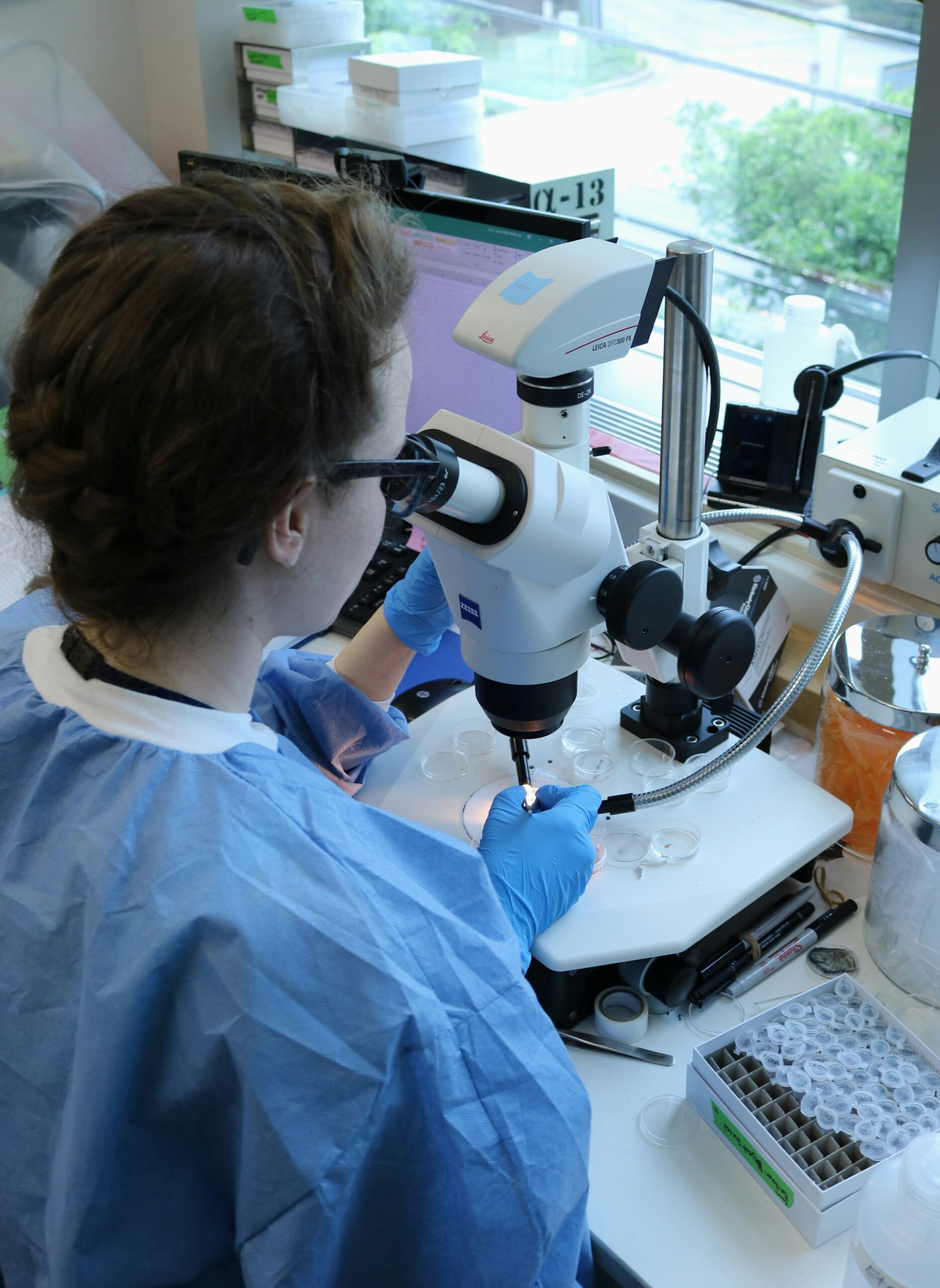How Green Technology Startups Are Powering a Sustainable Future

Photo by Pramod Tiwari on Unsplash
Introduction
The urgent need to address climate change and resource depletion has driven a surge of innovation in the green technology sector. Startups are leading this charge, harnessing cutting-edge science and entrepreneurship to create solutions that reduce environmental impact, improve efficiency, and foster a more sustainable world. This article explores how green technology startups are driving sustainability, highlights prominent examples, and provides practical guidance for individuals and organizations seeking to engage with this dynamic industry.
What Are Green Technology Startups?
Green technology startups focus on developing products, services, or systems that help reduce humanity’s ecological footprint. Their innovations span a wide range of industries, including renewable energy, sustainable agriculture, green chemistry, waste management, and alternative food sources. These companies typically combine advanced technologies-such as artificial intelligence, biotechnology, and clean energy systems-with business models aimed at scaling positive environmental impact.
Key Areas of Innovation
Major areas where green technology startups are making a difference include:
- Renewable energy : Developing better solar, wind, and energy storage solutions.
- Sustainable agriculture : Improving soil health, crop yields, and reducing chemical use.
- Green chemistry : Replacing fossil-fuel-based chemicals with safer, bio-based alternatives.
- Alternative proteins and food : Producing plant-based or cultivated meats with lower environmental impact.
- Waste reduction : Transforming waste into valuable resources or energy.
Notable Green Technology Startups Driving Sustainability
Several startups have earned recognition for their impactful innovations. Here are some prominent examples, along with their core contributions:
Solugen
Based in Houston, Texas, Solugen engineers sustainable chemicals through its proprietary Bioforge platform. By converting renewable feedstocks like corn sugar into essential chemicals, Solugen replaces fossil-fuel-derived substances in industries ranging from fuels to construction. This approach offers a lower-carbon, safer alternative to traditional chemical manufacturing, and recent grants from the US Department of Energy are helping the company scale its technology nationwide. Solugen has raised over $600 million in funding and is considered a leader in sustainable chemical innovation [2] .
Aurora Solar
San Francisco’s Aurora Solar provides advanced software that enables solar installers to design and sell solar systems remotely. Their technology streamlines project planning, modeling, and sales, helping accelerate the adoption of solar power for homes and businesses. With over $523 million in funding, Aurora Solar is recognized as the market standard for solar project software in the US, supporting rapid expansion of renewable energy infrastructure [2] .
Biome Makers
Operating out of Davis, California, Biome Makers offers analytics and reporting tools that help farmers monitor and improve soil health. By providing detailed data on soil fertility, biodiversity, and biological activity, Biome Makers empowers agricultural stakeholders to make informed decisions that boost yields while protecting the environment. Their technology plays a critical role in promoting regenerative agriculture and reversing soil degradation [1] .
Green Power Technologies
This UK-based startup creates remote power solutions using renewable energy. Their products, such as The Power Box and The Juice Box, serve as portable, efficient replacements for traditional diesel generators. By reducing fuel consumption and carbon emissions, these solutions are ideal for off-grid locations and temporary power needs, offering both environmental and economic benefits [4] .
Planted Foods AG and Mosa Meat
Planted Foods AG, based in Switzerland, produces plant-based meats as a sustainable alternative to traditional animal agriculture. Dutch startup Mosa Meat pioneers cultivated (lab-grown) meat, reducing land and water use, as well as greenhouse gas emissions. Both companies are recognized among Europe’s top climate innovators and showcase the potential for alternative proteins to transform the food industry [5] .
How to Access Green Technology Solutions and Opportunities
For individuals and organizations interested in leveraging green technology or supporting sustainable startups, there are multiple pathways:
1. Research and Identify Solutions
You can start by identifying specific sustainability challenges you want to address, such as reducing energy consumption, minimizing waste, or sourcing sustainable materials. Review reputable industry reports, such as the Green Technology Report from StartUs Insights, to discover leading startups and their offerings [4] . For the most current trends and examples, search for terms like “top green technology startups 2025” or “climate tech innovators.”
2. Engage with Startups Directly
Most green technology startups maintain official company websites with contact information for sales, partnerships, or pilot programs. If you are interested in a specific solution, consider visiting the startup’s official website and using their contact form or listed business email address to inquire about product demos, pilot projects, or purchasing options. For example, to learn more about Aurora Solar’s software, you can visit their official site and request a demo or sales contact [2] .
3. Leverage Accelerator and Support Programs
Many startups benefit from business accelerators, incubators, and government-supported innovation programs. If you are a founder or investor, consider exploring organizations such as EIT Climate-KIC, InnoEnergy, or local clean tech accelerators. These programs may offer funding, mentorship, and networking opportunities. To find relevant programs, search for “green tech accelerators in [your region]” or visit the European Institute of Innovation and Technology’s official website for program listings [5] .
4. Invest in Green Technology
If you are interested in supporting the growth of sustainable startups, consider learning about green investment funds, impact investing opportunities, or venture capital firms specializing in climate tech. Financial platforms and sustainability-focused investment newsletters often feature updates on active funding rounds and new opportunities. For individual investments, consult a licensed financial advisor with experience in ESG (Environmental, Social, Governance) investing.
5. Stay Informed and Advocate
Keep up to date with the latest advancements and regulatory changes by following industry news from reputable outlets and research organizations. Advocate for the adoption of green technologies within your organization or community by sharing information, hosting discussions, and encouraging decision-makers to consider sustainable alternatives.
Potential Challenges and Solutions
While green technology startups offer tremendous promise, they also face challenges such as high upfront costs, slow regulatory approval, and limited infrastructure for scaling. Solutions to these obstacles include public-private partnerships, increased government funding, and widespread education about the long-term benefits of sustainability. Many startups address financing barriers by offering pilot programs, leasing options, or partnerships with established firms.
Alternative Approaches and Additional Resources
For those unable to directly engage with startups, consider alternative approaches such as:

Photo by Artem Beliaikin on Unsplash
- Implementing energy efficiency measures using widely available products.
- Participating in community-supported agriculture or local renewable energy cooperatives.
- Advocating for sustainable procurement policies in your workplace or municipality.
To explore a broader list of environmental startups and their solutions, refer to curated lists and annual reports from established industry analysts. For academic research, university sustainability centers often publish guides and case studies on emerging green technologies.
Key Takeaways
Green technology startups are leading the way in driving sustainability through practical, scalable innovations. By addressing challenges in energy, agriculture, materials, and food, they offer actionable solutions for individuals, businesses, and governments. Engaging with this sector requires research, direct outreach, and a willingness to adapt to new models of sustainability. As the industry grows, new opportunities for collaboration and investment will continue to emerge, further accelerating the transition to a greener economy.
References
- [1] StartupSavant (2025). 27 Environmental Startups to Inspire You to Go Green in 2025.
- [2] Storm4 (2025). US-Based Green Technology Startups To Watch In 2025.
- [3] Visible.vc (2025). Top 15 Climate Tech Startups Revolutionizing Sustainability in 2025.
- [4] StartUs Insights (2025). Green Technology Report 2025: Market Data & Innovation Insights.
- [5] EIT (2025). EIT Startups Rank Among 2025’s Leading Greentech Innovators.



